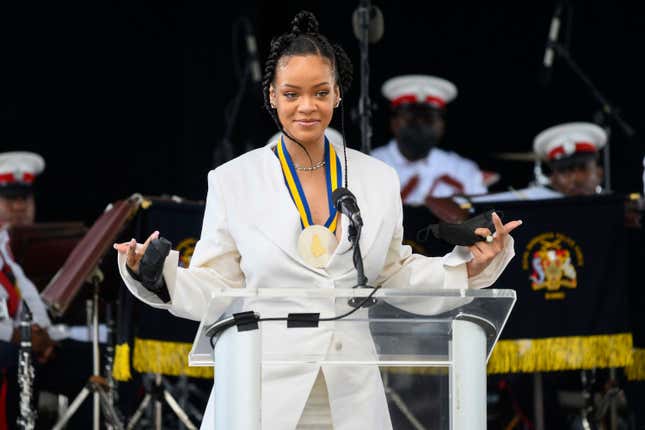
Barbados is putting an exclamation point on its new separation from the Queen of England.
Last week, the island gave the boot to the British monarchy, removing the queen as its head-of-state, transitioning to a republic form of government and naming Rihanna a national hero. Now the country is following up with plans to build a museum to preserve the history of the trans-Atlantic slave trade and commemorate its victims.
From The Independent
Barbados is to build a transatlantic slavery museum with the largest collection of British slave records outside the UK, the island’s prime minister has announced days after the country cut ties with the monarchy to become a republic.
The facility, designed by British architect Sir David Adjaye, will include a research institute dedicated to telling the story of slavery and its global impact.
It is expected to be situated at Newton Slave Burial Ground in Christ Church, just outside of the capital Bridgetown, which is the largest and earliest slave burial ground discovered in Barbados. Sir David will also design a memorial commemorating these victims.
It’s a big move for a country that was considered the first and largest of the British crown’s former colonies, especially given the influence the monarchy still holds in the Caribbean. The queen is still officially head-of-state in Antigua and Barbuda, Belize, Grenada, Jamaica, St. Kitts and Nevis, St. Lucia, St. Vincent and the Grenadines and the Bahamas and Tuvalu, according to Forbes.
The Caribbean slave trade and Great Britain’s role in it, of course, were brutal. The United Kingdom’s official historical archive counts 3.1 million Africans forcibly shipped across the Atlantic to work in British colonies between 1662 and 1807. It also recalls a history of rebellion and resistance, including Bussa’s Rebellion, a slave revolt in Barbados in 1816.
No word yet on when the new museum will open.
After ditching the queen, Barbados is pretty much run by Black women. Its prime minister, Mia Mottley, has been in office since 2018 and the country installed Sandra Mason as its first president last week.

